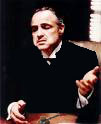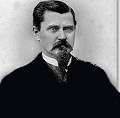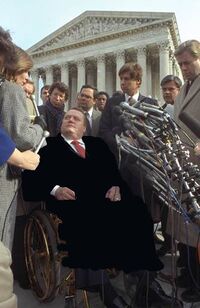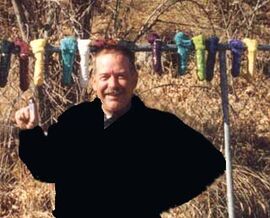Criminal Justice System
The Criminal Justice System (CJS) is an American institution comprising courts and law enforcement agencies. It is in many ways similar to the Regular Justice System (RJS), except that the Criminal Justice System is made up entirely of criminals. It is absolutely nothing like the Irregular Justice System (IJS), but bears a striking resemblance to the Irregular Injustice Systerm (IIS) for reasons no one has been able to quite figure out yet. BJS, of course, is an acronym for blow jobs, and has very little to do with this article.
Early history[edit]
There has probably always been a criminal justice system, but the modern CJS dates from the Wild West era. Without a significant RJS presence, western settlers created the CJS out of necessity. Their initial duties included organizing posses, planning and catering hanging parties, and of course cattle rustling, train robbery, and ridding towns of self-proclaimed good guys.
The first Chief Justice of the Criminal Supreme Court was Charles Bolles, the poet and stagecoach robber known as Black Assed Bart. An unpretentious man ("Just call me Black Ass"), he set a precedent of informality that was followed for most of the 19th century. The first Criminal judges seldom wore robes (and those that did seldom wore anything underneath), as they were usually dressed in black anyway.
RJS/CJS rivalry[edit]
For decades, the Criminal Justice System operated as a sort of parallel justice system. The CJS police agencies in major cities were never successful, as there were so many crooks in the Regular police force that the two seemed indistinguishable. Criminal judges, however, were always in demand. They seemed to possess an uncanny ability to weigh the facts carelessly and to render an unjust verdict. By the time of Prohibition, Criminal judges had become disrespected members of society.
Naturally, the guilty sought out the most lenient judges, and the RJS courts began to lose market share. In the 1960s the Regular Supreme Court under Cheif Justice Earl Warren competed successfully with the Criminal courts by releasing just about every defendant on some sort of technicality. Not to be outdone, the Criminal Supreme Court, under Chief Justice "Let-em-loose Larry" Flynt, declared prisons unconstitutional and released their populations en masse.
Modern history[edit]
Public outrage at the rising crime rate threatened the CJS, but the election of President Ronald Reagan brought a new approach to the problem. "Choice" was a powerful buzzword in conservative circles, so the Criminal Justice System was officially recognized as an alternative to the Regular Justice System. This allowed consumers of justice, and injustice, to legally shop around for the best deal, though critics contend it was the rich who benefited.
Today there are Criminal State Courts, Criminal Federal Courts, Criminal Circuit Courts, Criminal Courts of Appeal, a Criminal Supreme Court, Criminal cops, Criminal Feds, and of course the CBI (Criminal Bureau of Investigation). It is a rare citizen indeed who cannot obtain injustice in America today.
Famous Criminal judges[edit]
Despite criticism of the Criminal Justice System, CJS judges have often been innovators in jurisprudence. For example, California judge O-Ren Ishii found a way around the state's ban on capital punishment through the introduction of decapital punishment.
Controversy ignited over the appointment of Robert "El Dildo Bandido" Rowan to the Criminal Supreme Court seat vacated by the retiring Justice Hector "The Frito Bandito" del Cholo. The main criticisms were that Rowan, despite the monicker, was not really Hispanic, and that his crimes were not serious enough to qualify him for such high office. Rowan's case was inadvertently helped by intemperate statements from feminist politicians ("He has robbed us of our manhood!" screamed Nancy Pelosi). He was narrowly confirmed, and continues to serve with dishonor.
Of course, the most famous Criminal judge of all time is Judge Judy.





